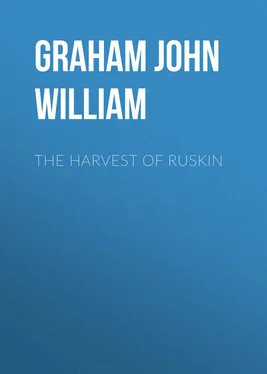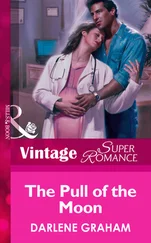John Graham - The Harvest of Ruskin
Здесь есть возможность читать онлайн «John Graham - The Harvest of Ruskin» — ознакомительный отрывок электронной книги совершенно бесплатно, а после прочтения отрывка купить полную версию. В некоторых случаях можно слушать аудио, скачать через торрент в формате fb2 и присутствует краткое содержание. Жанр: literature_19, foreign_antique, foreign_prose, на английском языке. Описание произведения, (предисловие) а так же отзывы посетителей доступны на портале библиотеки ЛибКат.
- Название:The Harvest of Ruskin
- Автор:
- Жанр:
- Год:неизвестен
- ISBN:нет данных
- Рейтинг книги:5 / 5. Голосов: 1
-
Избранное:Добавить в избранное
- Отзывы:
-
Ваша оценка:
- 100
- 1
- 2
- 3
- 4
- 5
The Harvest of Ruskin: краткое содержание, описание и аннотация
Предлагаем к чтению аннотацию, описание, краткое содержание или предисловие (зависит от того, что написал сам автор книги «The Harvest of Ruskin»). Если вы не нашли необходимую информацию о книге — напишите в комментариях, мы постараемся отыскать её.
The Harvest of Ruskin — читать онлайн ознакомительный отрывок
Ниже представлен текст книги, разбитый по страницам. Система сохранения места последней прочитанной страницы, позволяет с удобством читать онлайн бесплатно книгу «The Harvest of Ruskin», без необходимости каждый раз заново искать на чём Вы остановились. Поставьте закладку, и сможете в любой момент перейти на страницу, на которой закончили чтение.
Интервал:
Закладка:
“This preaching of Christ has, nevertheless, become an acknowledged profession and means of livelihood for gentlemen: and the simony of to-day differs only from that of apostolic times, in that, while the elder Simon thought the gift of the Holy Ghost worth a considerable offer in ready money, the modern Simon would on the whole refuse to accept the same gift of the Third Person of the Trinity, without a nice little attached income, a pretty church, with a steeple restored by Mr. Scott, and an eligible neighbourhood.” 29 29 Letter LV.
And, in soberer vein: “No way will ever be found of rightly ordaining men who have taken up the trade of preaching as a means of livelihood, and to whom it is a matter of personal interest whether they preach in one place or another; only those who have left their means of living, that they may preach, and whose peace follows them as they wander, and abides where they enter in, are of God’s ordaining; and practically until the Church insists that every one of her ministers shall either have an independent income, or support himself for his ministry on Sunday by true bodily toil during the week, no word of the living Gospel will ever be spoken from her pulpits. How many of those who now occupy them have verily been invited to such office by the Holy Ghost may be easily judged by observing how many the Holy Ghost has similarly invited of religious persons already in prosperous business or desirable position.” 30 30 Fors , Letter LXXV, § 21. Notes and Correspondence.
Another passage from another place runs: “Take the desire of teaching – the entirely unselfish and noble instinct for telling to those who are ignorant the truth we know, and guarding them from the errors we see them in danger of – there is no nobler, no more constant instinct in honourable breasts; but let the Devil formalise it, and mix the pride of a profession with it – get foolish people entrusted with the business of instruction, and make their giddy heads giddier by putting them up in pulpits above a submissive crowd – and you have it instantly corrupted into its own reverse; you have an alliance against the light (saying) ‘Light is in us only. Shut your eyes close and fast and we will lead you.’ ” 31 31 Time and Tide , p. 71.
In another place he says the difficult question is not, why workmen don’t go to church, but – why other people do. He asks, 32 32 Sheepfolds , p. 269.
“What Scripture warrant there is for the offices and authority of the clergy, and defies anyone to find any.” Their functions, he says, must depend on the needs of the time. “Robinson Crusoe, on his island, wants no Bishop, and makes a thunderstorm do for an evangelist. The University of Oxford would do ill without its Bishop, but wants an evangelist besides, and that forthwith.”
He says that by yielding to the impression that the most sacred calling is that of the clergy, “the sacred character of the layman himself is forgotten, and his own ministerial duty is neglected,” and so laymen wrongly “devote their whole time and energy to the business of this world. No mistake can possibly be greater. Every member of the Church is equally bound to the service of the Head of the Church, and that service is pre-eminently the saving of souls. There is not a moment of a man’s active life in which he may not be indirectly preaching, and throughout a great part of his life he ought to be directly preaching, and teaching both strangers and friends.” This is from the Sheepfolds pamphlet of 1851; at that time he nevertheless contemplates church officers of a sort, as organizers, deacons, or visitors, and thinks they may be maintained for their special work, and includes religious instruction and exhortation among these duties. But this last advice he supersedes in Fors of 1873 and later dates, when he places preaching on a purely amateur basis, in the passages quoted already, and similar ones.
“All good judging, and all good preaching, must be given gratis. Look back to what I have incidentally said of lawyers and clergy, as professional – that is to say, as living by their judgment, and sermons. You will perhaps now be able to receive my conclusive statement, that all such professional sale of justice and mercy is a deadly sin. A man may sell the work of his hands, but not his equity, nor his piety. Let him live by his spade, and if his neighbours find him wise enough to decide a dispute between them, or if he is in modesty and simplicity able to give them a piece of pious advice, let him do so, in Heaven’s name, but not take a fee for it.” 33 33 Fors , Letter XXXI, § 18, and also Letter LXVII, § 10.
In Letter XIII of Time and Tide and in Sesame and Lilies § 22 he explains the sort of functions he would give to his Bishops, as described in Chapter V.
We have incidentally alluded to Ruskin’s teaching on the Priesthood of all Believers. He asserts that all members of the Universal Church are Priests, 34 34 Sheepfolds , p. 271.
that the exclusive priestly claim of the Clergy is “blasphemous,” and has no shadow of excuse, “because it has been ordained by the Holy Spirit that no Christian minister shall once call himself a Priest as distinguished from his flock from one end of the New Testament to the other.”
Schools of religious thought are discriminated by nothing so decisively as by their attitude to the Bible. They are classed at once if they call the Bible the Word of God. This bad and quite unauthorized habit has blinded many eyes. Ruskin attacks it again and again. “The error consists, first, in declaring a bad translation of a group of books of various qualities, accidentally associated, to be the Word of God. Secondly, reading of this singular Word of God, only the bits they like, and never taking any pains to understand even those. Thirdly, resolutely refusing to practise even the small bits they do understand, if such practice happen to go against their own worldly – especially money – interests.” 35 35 Fors , Letter XXXV, § 3.
Compare this severe passage with one from The Ethics of the Dust , V § 59: “The way in which common people read their Bibles is just like the way that the old monks thought hedgehogs ate grapes. They rolled themselves (it was said), over and over, where the grapes lay on the ground: what fruit stuck to their spines, they carried off and ate. So your hedgehoggy readers roll themselves over and over their Bibles, and declare that whatever sticks to their own spines is Scripture, and that nothing else is.” 36 36 See also Fors , Letter LXV and Letter XLIV, also Letter XL for an amusing account of the edifying Bible story of Joab and Abner; and very numerous other passages.
But Ruskin is not satisfied with negative teaching on this great subject. He tells us what the Word of God is, as well as what it is not:
“By that Word, or Voice, or Breath, or Spirit, the heavens and earth, and all the host of them, were made, and in it they exist. It is your life; and speaks to you always, so long as you live nobly; dies out of you as you refuse to obey it; leaves you to hear, and be slain by, the word of an evil spirit, instead. It may come to you in books – come to you in clouds – come to you in the voices of men – come to you in the stillness of deserts. You must be strong in evil, if you have quenched it wholly; – very desolate in this Christian land, if you have never heard it at all.” 37 37 Fors , Letter XXXVI, § 3.
Much may be gleaned from a man’s use of the word Church. Is it a building, or a select and limited outward community or more than either? Ruskin, interpreting Scripture in his Sheepfolds , 38 38 On the Old Road , vol. ii. p. 253.
finds a Low Church divine giving the meaning of the word Church to be an “external institution of certain forms of worship.” He therefore suggests the following emendations: “Unto the angel of the external institution of certain forms of worship at Ephesus write,” and “Salute the brethren which are at Laodicea, and Nymphas, and the external institution of certain forms of worship which is in his house.”
Интервал:
Закладка:
Похожие книги на «The Harvest of Ruskin»
Представляем Вашему вниманию похожие книги на «The Harvest of Ruskin» списком для выбора. Мы отобрали схожую по названию и смыслу литературу в надежде предоставить читателям больше вариантов отыскать новые, интересные, ещё непрочитанные произведения.
Обсуждение, отзывы о книге «The Harvest of Ruskin» и просто собственные мнения читателей. Оставьте ваши комментарии, напишите, что Вы думаете о произведении, его смысле или главных героях. Укажите что конкретно понравилось, а что нет, и почему Вы так считаете.












